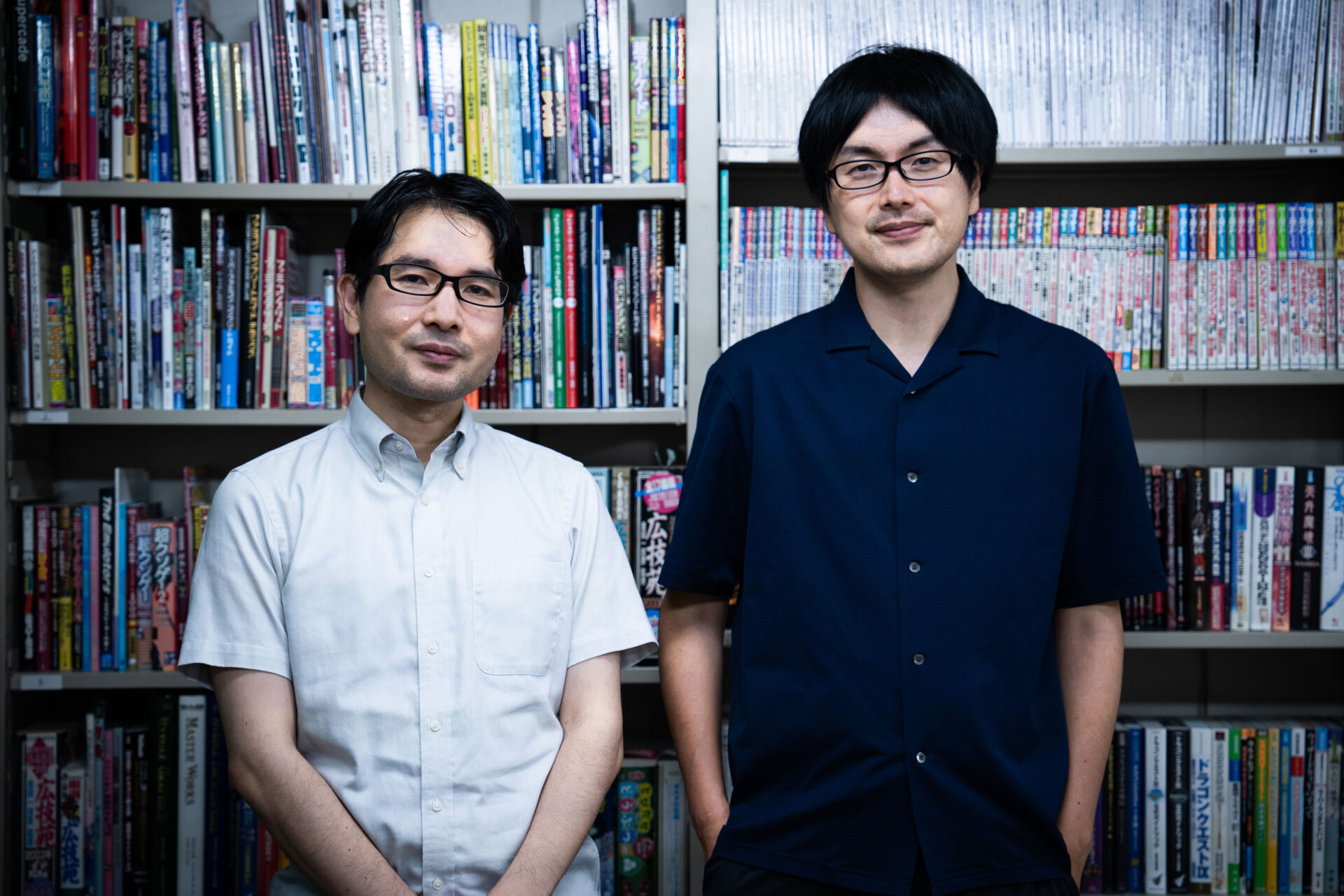Series: Choosing an alcohol free life
Drinks have been a beloved shikohin since ancient times, especially alcoholic ones. In Japan it is said that large scale sake brewing started about 2,000 years ago, along with the beginning of rice cultivation. Even today, alcohol continues to be a popular shikohin.
On the other hand, some changes are arising in how alcohol is perceived. There is a growing number of people who are choosing a sober curious lifestyle and the notion that alcohol is the shikohin of choice for adults is gradually crumbling. So what significance does alcohol have in our modern lives and what changes are behind the shift towards sober curious lifestyles?
In this series, “Choosing an alcohol free life”, critic Tsunehiro Uno will speak with intellectuals of various backgrounds to discuss the current status of alcohol as a shikohin and the lifestyle behind adults who are choosing a sober life.
For the second article of this series, we visited game researcher Akito Inoue. As a researcher of games and leisure, how does Inoue view the current ways drinking parties are enjoyed as a leisure activity? When talking about the similarities between games, food and drink and how these leisure activities bring us pleasure, the concept of “leaving behind strategy guides” became central to the discussion.
Alcohol and games changes our modes of communication
Uno: Drinking parties have always been a dominant example of adult leisure, but lately there are more people who are choosing an alcohol-free lifestyle and it is said that more people are choosing to stay away from drinking parties. In the field of critics and thought there is a culture of bad mouthing people or trying to win the favor of your boss at these gatherings. Although this extreme example may not be true across all fields, I am not a fan of drinking culture because it seems to symbolize outdated values of Japanese work ethic and the over emphasis on the role of drinking in building relationships. Of course, I do not intend to criticize drinking culture itself. As a researcher of leisure, including games, how do you interpret these recent changes and trends?
Inoue:I think that recently we have more options and methods to “change the mode of communication” besides drinking alcohol and participating in drinking parties. Throughout human history sharing alcoholic drinks has been one the the most successful ways to ease or liven up communication. Throughout time and across cultures people have believed that alcohol helps to initiate communication and I believe that to a certain extent this has always proven to be true.
On the other hand, our modern world offers other methods besides alcohol to change our modes of communication. In the world of gaming there has been a recent surge in the popularity of board games. It is possible to enjoy board games with strangers and it is also a useful tool in opening up communication.
Of course, board games have been around for a long time, but I think that its recent surge in popularity gives us some insight into the current state of values that also affect our way of looking at communication through alcohol.
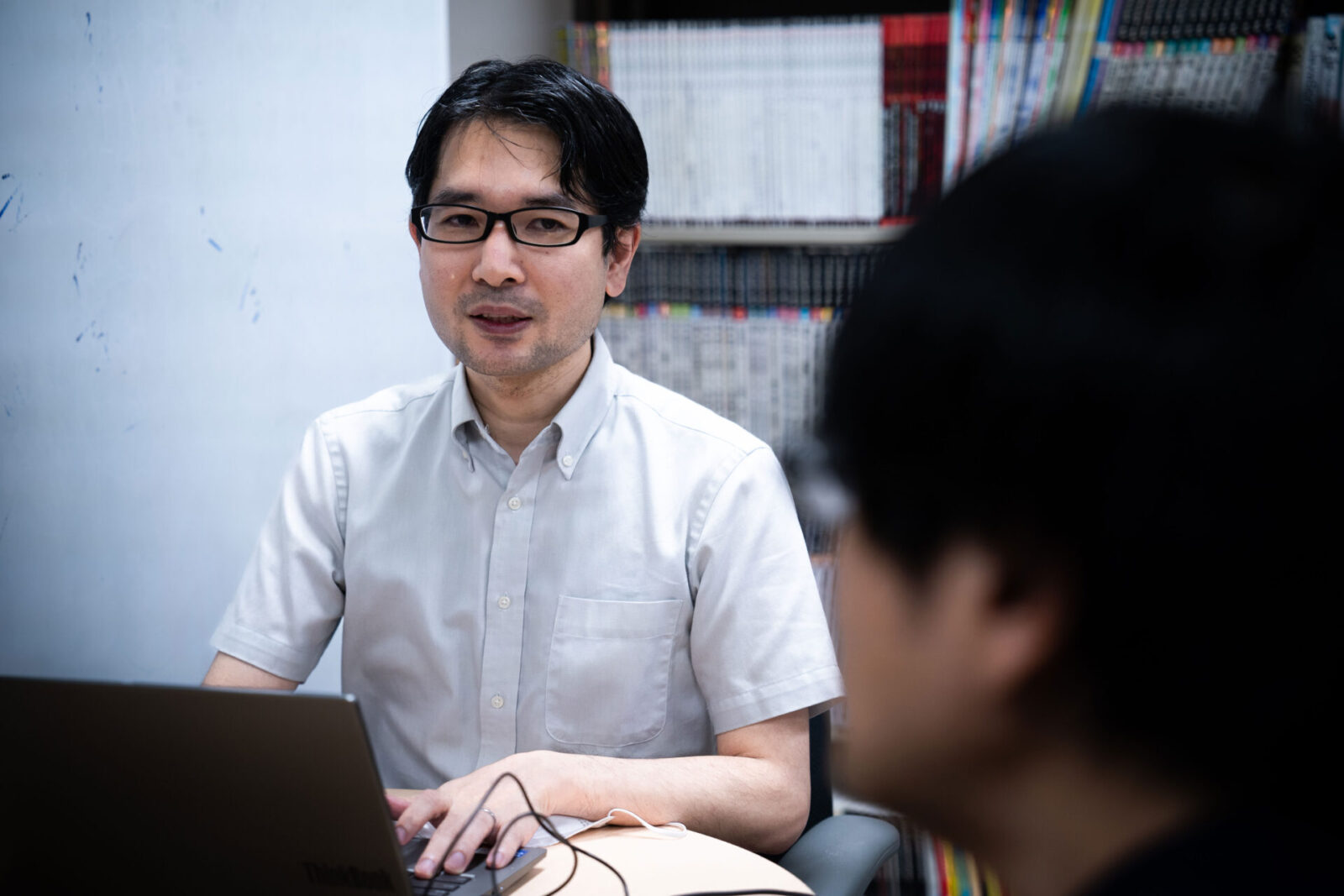
Uno:I see. You mean that drinking parties and games are similar in the sense that they change our mode of communication?
Inoue: Besides board games, it has been pointed out that online games help people who struggle with interpersonal and in-person communication to communicate more smoothly. In the physical world, we communicate while picking up on the other person’s non-verbal cues such as facial expressions and eye contact. However, many people who struggle with in-person communication have trouble picking up on slight changes in eye contact and facial expressions and that creates discomfort in communication. On the other hand, in the world of games where you cannot see the other person’s face or body, it is not necessary to read facial expressions or body language so they have an easier time communicating.
In other words, I think it is fair to say that online games change the way we experience physical sensations during communication. Just as some people feel closer to someone when they drink together, alcohol also changes our physical sensations during communication.
With the evolution of technology our modes of communication, or the tools that change our physical sensations during communication, has increased. In the gaming world the head-mounted display used in VR is a prime example. Social media networks may be another example. With the rise of these various new tools, perhaps the dominant method of drinking to communicate has broken down into more varied options.
Finding leisure that is better than drinking parties and social media
Uno: Drinking may have been the most popular form of leisure throughout history because it was the most effective tool to change our mode of communication in the past. I agree that alcohol’s position as the most effective tool in communication is being challenged as information technology advances and other options become available.
Social media has now become mainstream and I believe that social media is replacing drinking parties. Text based social media networks have environments that are especially close to that of drinking parties. In other words, whether it be at a drinking party or on social media, people get together and form communities by bad mouthing a common enemy.
The easiest way to get a lot of likes on X is to post a radical and snide remark regarding a common enemy of a certain cluster of people. This attracts a lot of likes from the cluster and the person who posted the remark gets recognized as being a part of that group. This structure is the same with drinking parties so I think that social media is what will replace drinking parties.
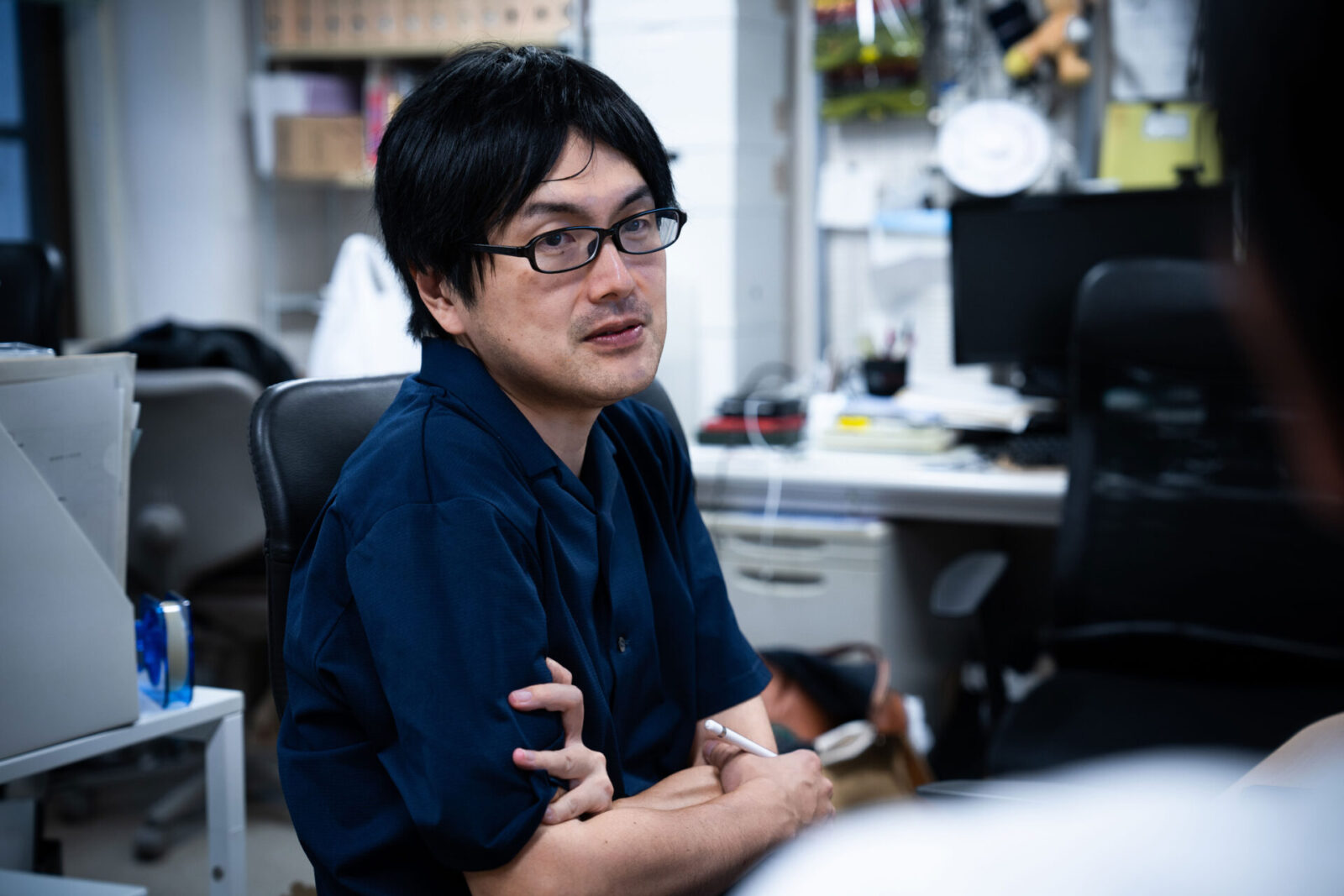
Inoue:I think that the triviality I feel in social media lately is similar to the triviality in drinking parties.
Uno: The popularity of social media is becoming a threat to leisure and play. I thought that as drinking parties become less popular, the ways in which we enjoy leisure and play will diversify, but now everyone is consumed by chatting away on social media.
For example, sales of books have fallen for some time and I think it is related to the fact that we can now talk to people on social media for free 24/7. As people become consumed in online chatting, they lose time to read books. Other media besides books, such as movies, are also losing the race in the fight for people’s time.
Chatting is indeed a fun activity and it is the easiest way to get external validation. That is why it is so easy for people to get consumed in the joy of bad mouthing others and it has become a way for people to make money or win popularity votes. This is why I think that unless we find leisure and fun that can compete with the enjoyment and pleasure we derive from social media, our world will not become a better place. Leisure and play that is not drinking parties or social media can help diversify communication and also make the world a more diverse place.
Solo leisure activities will provide as much joy as drinking and social media
Inoue: That is a very interesting point.
Uno: If the pleasure we derive from drinking parties and social media comes from exchanges of validation and reassurance, I believe that finding joy in solo leisure activities is one way we can counter that. I personally enjoy running and insect collecting and most of the time I enjoy these activities alone.
Of course I enjoy hanging out with my friends, but there are certain pleasures that can only be obtained through solo activities and I think these pleasures are comparable to obtaining external validation and reassurance. However, I find that solo leisure activities are often neglected and given a bad rep.
Inoue: I know what you mean. Although there is the word “gamer”, how each person enjoys games is very diverse. I personally am not a big fan of online games. In 2013 I played Minecraft so much that I was practically living in it, but I played stand alone rather than with other people online.
Regardless, I enjoyed it thoroughly and I think there are other people like me who don’t mind solo activities at all. At the same time, I think there are many people who find solo activities to be lonely.
Uno: Yes, that’s true. I think that is why many people enjoy drinking with others or chatting online on social media. However, simply immersing yourself in pleasure derived from external validation will not change the mode of the world. That is why I want people to find joy in solo leisure activities and resist the need for pleasure from external validation.
Inoue: We often describe someone who is hooked on something as “getting stuck in a swamp” in Japanese. For a long time I was stuck in the world of keyboards and whenever I had time I would modify or make my own keyboards.
I think getting hooked on something allows us to experience pleasure from solo activities, but obsessions often require a certain amount of time and financial investment and the hurdle to pursue these activities is often pretty high. Drinking parties and SNS are inexpensive to participate in so it may be hard to find something equally accessible and enjoyable as these activities.

Uno: I think that authentic food and drinking experiences are something that can compete with drinking parties and social media. Perhaps not using “strategy guides” for food and drink is another way to describe it.
Inoue: What do you mean by not using strategy guides for food and drink?
Uno: I began to think about this when I heard the words of Toshiki Inoue (a screenwriter who worked on special effects movies such as the Super Sentai series and the Heisei Kamen Rider series). He is one of the most gourmet people I know and when I go out to eat with him he eats the food the moment it is served.
He says, “All foods taste best the moment it is served so don’t try to take your time to savor it.” In other words, enjoying the food that is served without thinking or talking is the true way to enjoy the pleasure of eating and drinking. I think this way of enjoying food and drink provides insight to how we can enjoy solo leisure activities.
Pleasure that doesn’t rely on strategy guides that exist in food and drink
Uno: In terms of games, when I was in university I spent most of my time playing the game Romance of the Three Kingdoms VII in which you become a general or monarch from one of the three kingdoms and aim to unify China. After I reached a point where I felt like I had conquered most of the game I enjoyed it by letting it unfold on its own without strategizing too much.
I realized then that some pleasure is lost when you prioritize strategy too much. To put it figuratively, putting too much priority on reaching the goal takes away the pleasure of the b-dash function (accelerated running). If you play Super Mario Brothers with too much focus on efficiency when trying to clear a stage, you will not enjoy the pleasurable sensations of using the b-dash function in the game.
This vague feeling turned into a conviction when I started running. When you decide to set a target time in your running and only run in order to beat that goal, it takes the pleasure out of running itself.

Inoue: I think that is an important point. From the standpoint of making games, developers try to add as many strategic elements in order to please as many people as possible. Most players don’t know what to do without these strategic elements and would be at a loss. Strategizing is the most direct and obvious way to enjoy a game.
However, strategizing sometimes robs players of their creativity. Sociologist Shinichiro Inaba once said that elements that require one to really dig into a task may make the game boring. In the 80s, developers did not usually include elements in a game that required a lot of digging into and players used their creativity to find their own various ways to enjoy the game.
However, as developers added more such elements, Inaba says that there was no room left for players to exercise their creativity. In the same way, I feel that focusing only on strategy takes away a certain level of fun.
Uno: When contemplating the age of post-drinking or post-playing, the pleasure derived from not strategizing will be important. Social media is a game of collecting likes and these games often include the element of strategy in their enjoyment.
I think that there is a non-strategic pleasure in authentic food and drink experiences. It was not until services started rating restaurants with stars and numbers that food and drink experiences became strategic. Before that, eating and drinking did not involve strategy, but rather it was a leisure to purely enjoy pleasurable sensations.
Perhaps there is a need for us to separate strategic pleasure from all leisure activities, including food and drink.
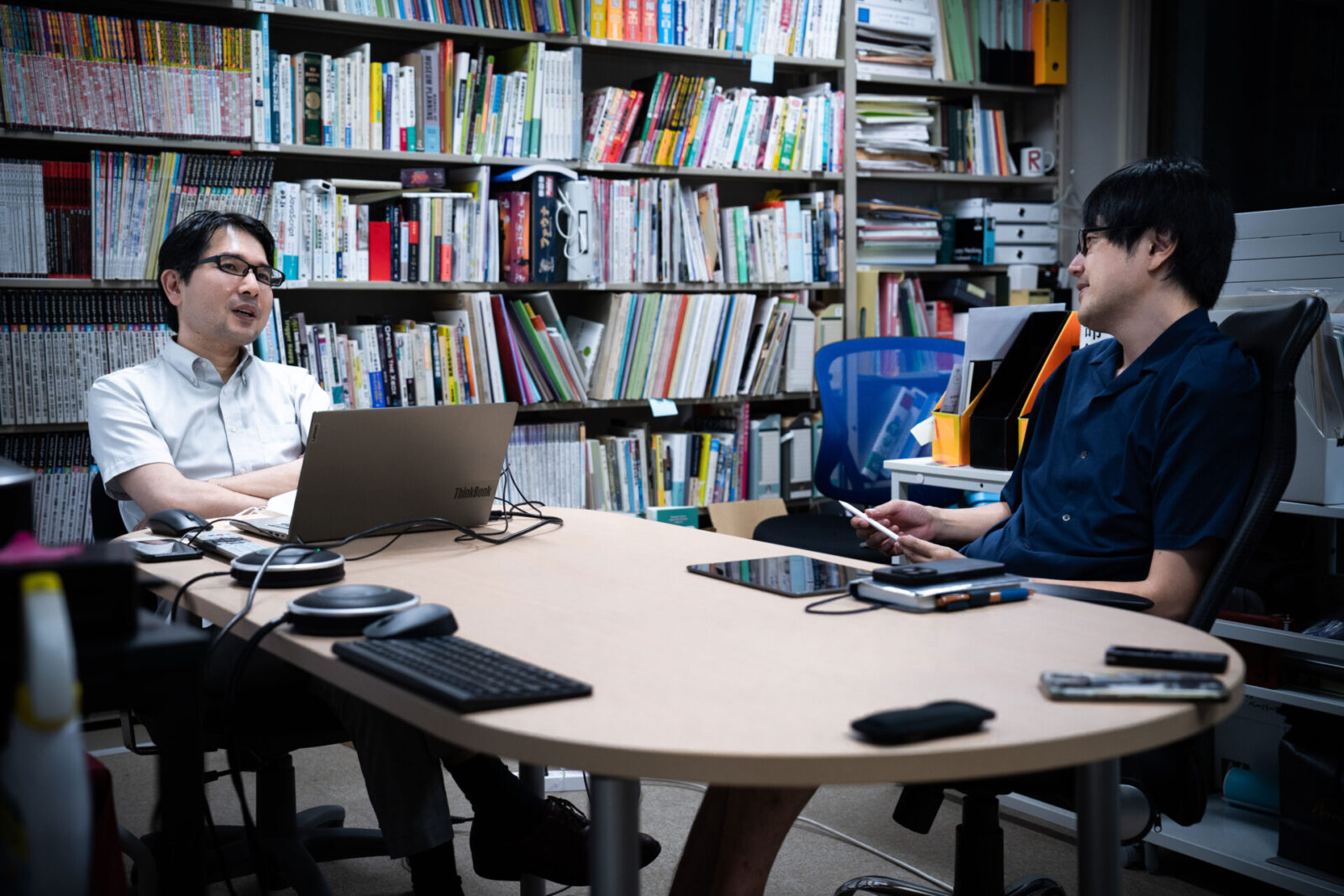
Leaving behind strategy guides in the post drinking age
Inoue: That’s an interesting point of view. In fact, there was a time when I enjoyed using strategic guide books for food and drink published by gourmet services. I used to work in an office in Roppongi so there were many highly rated gourmet restaurants within walking distance so I followed the book to try each one.
As I visited these restaurants I came to the realization that the ratings in the gourmet service guides did not necessarily match with my personal taste. More specifically, I found that my trust in the ratings largely depended on the genre of food. For example, the ratings for ramen noodle shops usually matched my taste, but for soba noodles it did not.
I found that my understanding of my taste preferences became clearer as I strategically visited various restaurants. In other words, the act of strategically conquering various restaurants put me in a mode where I could discover my personal tastes.
Although focusing only on “conquering” all the restaurants puts the focus of pleasure on that goal, it also gave me the opportunity to enjoy and learn about something I didn’t know before.
Uno: In terms of our society becoming more focused on information and turning things into games, I think the food and drink industry has been at the forefront of this trend. For example, people who accumulate knowledge about wine and talk about it in detail whenever they are given a chance give the impression that they are trying to conquer some kind of old game. When gourmet services joined that trend, food and drink became even more like a game that is possible to conquer through strategy.
I think we need to focus on how to leave behind strategy in food and drink now. I believe this will provide us with important insight in sober curious lifestyles, post-alcoholic food culture, and how we move forward with leisure culture.
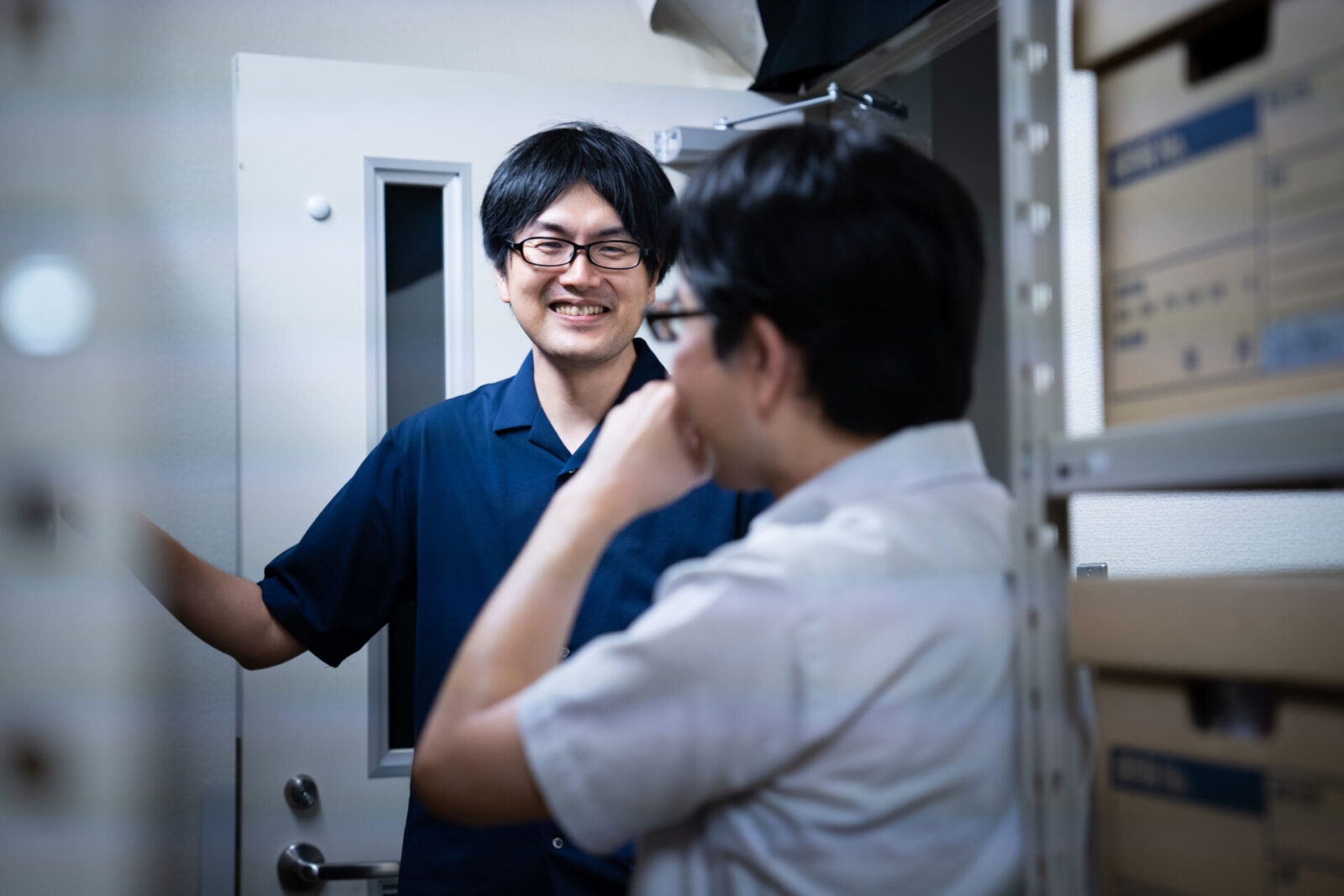
Translation: Sophia Swanson
